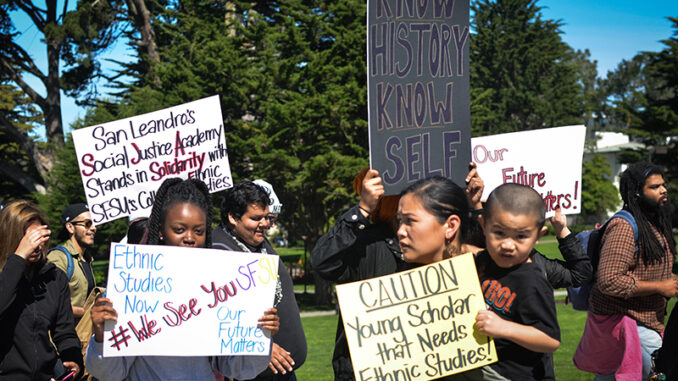
By Darlene Arvelo
In recent years, there has been a much-needed effort in institutions to embrace and ignite decolonization, mainly in the context of academia. Decolonization in academia refers to the process of dismantling deeply ingrained colonial philosophies, ideologies, and structures that came over on ships even before the Mayflower. The push for decolonization in academia is not only necessary, but urgent to create more inclusive, diverse, and equitable educational spaces.
The ideas taught and learned within these institutions are an attempt to understand the present, predict the future, and are defined by the ideas of the past. When we think about it, we realize that much of the education we receive is focused on the world after Christopher Columbus’ colonization of the Americas. From the 15th century onward, European countries imposed their worldviews on countries they invaded. Since then, these worldviews have seeped into nearly all aspects of life. Recent decolonization efforts aim to shed these layers of outdated and hierarchical living.
It is an effort to recognize the damage done and make repairs to damaged structures. The damage is acknowledged by critiquing and revising academic practices, curricula focusing on Western ideologies, and methodologies that have been shaped by colonial perspectives. The damage is repaired by centering the voices of those historically marginalized and further promoting approaches to education that recognize the value of indigenous, local, and non-Western ways of learning and teaching.
Western countries have shaped the educational system, primarily through the spread of Western ideologies, unfair hierarchies, and skewed Eurocentric recounts of history which often present the West as central to the development of the modern world. This centralization, in turn, has marginalized knowledge from indigenous, African, Asian, and Latin American cultures, to name a few. Non-Western knowledge has often been either completely ignored, criminally undervalued, or maliciously misrepresented within academic spaces.
For scholars and academics, the movement encourages scholars to integrate non-Western knowledge into academic discourse, promote the diversification of academic voices, question established hierarchies, broaden the scope of curiosity, and engage in research that is more equitable and inclusive. The impact lies in a more diverse and holistic understanding of the world.
For students, the power of decolonial efforts lies in empowering students from marginalized backgrounds by validating their histories and cultures. More generally, it encourages students to engage with diverse intellectual traditions, develop interdisciplinary skills, and critical engagements with the assumed facts of history, and become advocates for social justice and equality.
Several institutions worldwide are actively engaging in efforts to decolonize education, whether through colonial symbol removal, curriculum reforms, structural changes, or research initiatives. Among many others are the University of Delhi in India, the University of the Andes (Universidad de los Andes) in Colombia, and Oxford University in the United Kingdom. The University of Cape Town (UCT) in South Africa made one of the most powerful strides toward decolonization in 2015. Fueled by student and staff protests and global attention garnered by the #RhodesMustFall movement, UCT removed from their campus a statue of Cecil Rhodes–former prime minister of Britain’s occupation at Cape Town and a symbol of white supremacy.
While the specific approaches may vary from institution to institution, there is a common theme: growing recognition that academic institutions must challenge historical inequalities, restructure the power dynamics, and create more inclusive, diverse, and equitable academic environments. Much of the work is yet to be done, but these efforts reflect a collective movement toward academia that is more representative of, and responsive to, the cultures of the world in its entirety. The more we embrace this movement, the closer we move to an educational system that is genuinely inclusive, socially just, and capable of solving the complex, interconnecting challenges of the modern world.

